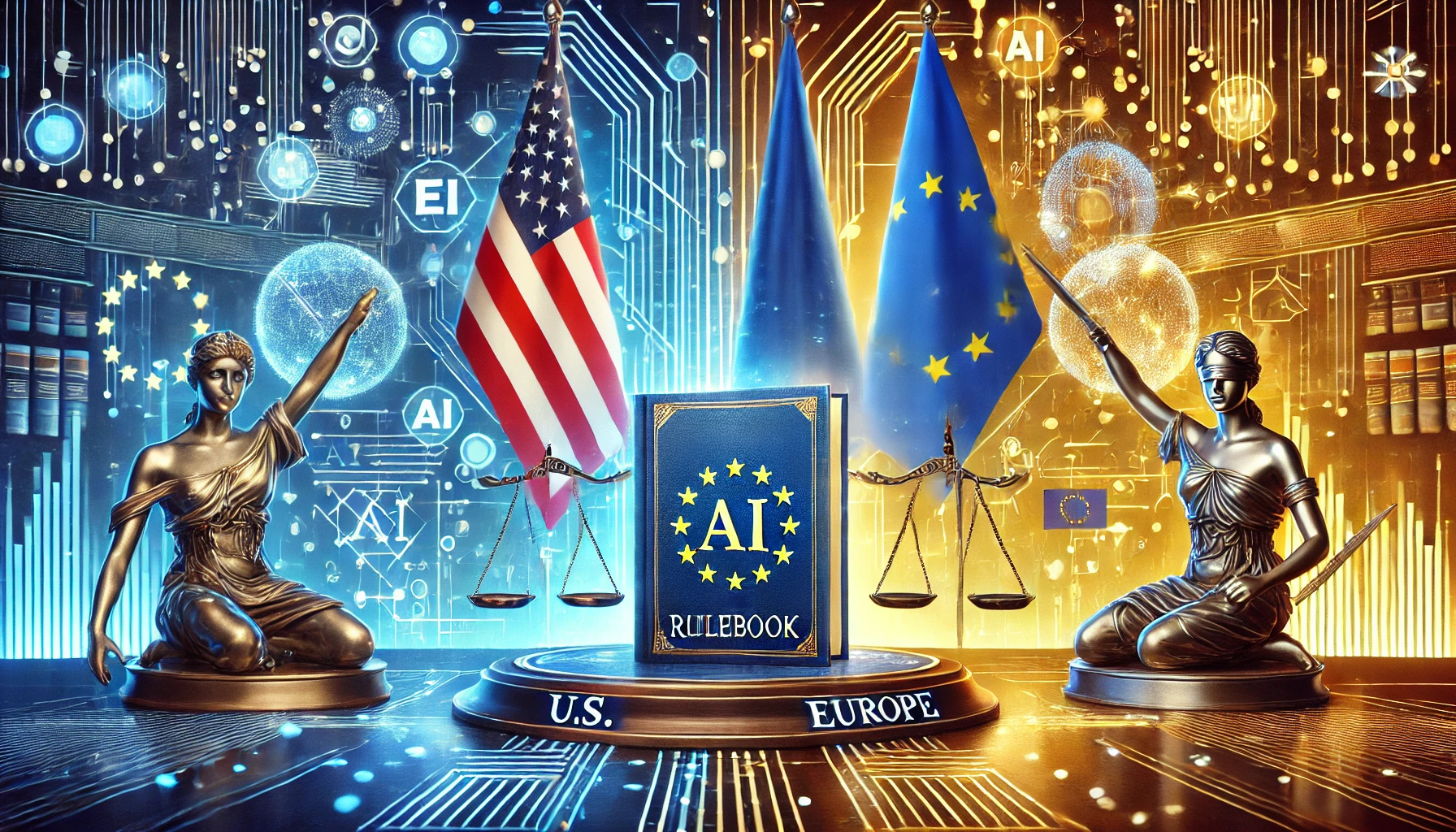US President Donald Trump’s administration is putting pressure on Europe to ditch a rulebook that would compel developers of advanced artificial intelligence to follow stricter standards of transparency, risk-mitigation and copyright rules.
The US government’s Mission to the EU reached out to the European Commission to push back against the AI code of practice in the last few weeks. The letter argues against the adoption of the code in its current form, and also went out to several European governments, people familiar with the matter said. In response to Bloomberg questions, commission spokesman Thomas Regnier confirmed the reception of the letter.
While the code — which is still being finalized — is voluntary, it’s meant to give tech companies a framework for staying in line with the EU’s Artificial Intelligence Act. Running afoul of the AI Act carries fines of as much as 7% of a company’s annual sales. Fines for the developers of advanced AI models can reach 3%. And not following the code could mean greater scrutiny from regulators.
Critics have said the guidelines go beyond the bounds of the AI law, and create new, onerous regulations.
Trump and the EU are increasingly clashing over the latter’s role as the world’s chief digital rule maker, and the President has lambasted the bloc’s tech regulations and fines as unfairly targeting US companies. House Judiciary Committee Chairman Jim Jordan sent a volley of letters to EU leaders asking them to respond to his concerns that their policies were restricting Americans’ free speech rights. Trump has said the bloc’s tech regulations are “a form of taxation,” in comments at the World Economic Forum in Davos in January.
The US letter called the code excessively burdensome, and detailed its concerns about the code of practice, and the AI Act at large, one of the people said. The letter went as far as requesting that the EU put the entire AI Act’s multi-phase implementation process — whose centerpiece is the code of practice hemming in powerful AI models — on hold unless the issues raised by the US are addressed, the person said, asking not to be identified because the letter isn’t public.
The government also made its technology experts available to EU officials for further clarifications, according to the person.
Representatives for the United States Mission to the EU and the White House didn’t immediately respond to requests for comment.
The code of practice is being drafted by tech firms, copyright holders, and civil society representatives, under the stewardship of the EU’s executive branch, the European Commission. The final version of the code will be presented next month, and adopted based on the opinions of EU institution and EU member countries’ representatives.
Speaking virtually at a Brussels event in February, Meta Platforms Inc.’s head of global affairs Joel Kaplan called the code of practice “unworkable and infeasible,” adding that the company would not sign it in its present form. Alphabet Inc. has also criticized the rulebook and an executive said in an interview with Politico in February that guidelines calling for copyright or third-party model testing go too far.
“We have an administration in the United States that is prepared to help advance and and defend US technology and technology companies,” Kaplan said at the time. “Obviously we’re going to make sure that they understand what we experience.”
An EU decision, earlier this week, to slap Apple Inc. and Meta with combined fines totaling €700 million ($798 million) for violating antitrust rules was slated as “economic extortion” by Brian Hughes, a spokesman for the National Security Council in the White House.
Source: https://www.bloomberg.com/


